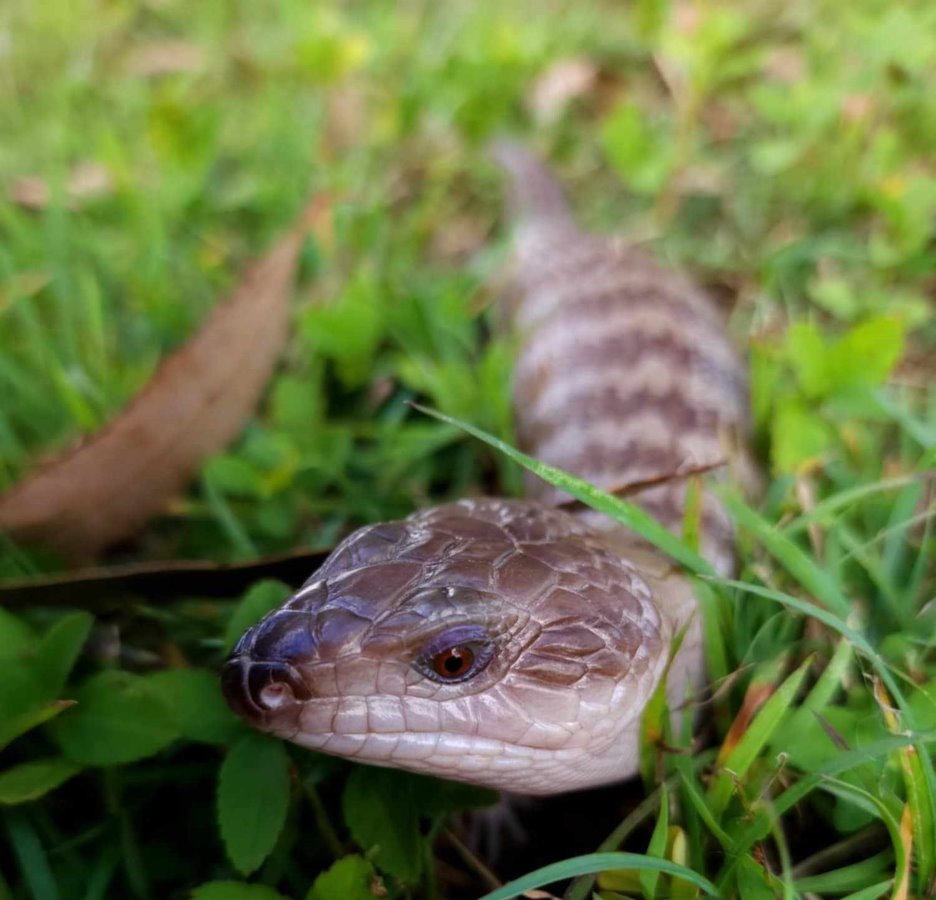Common Eastern Blue Tongue – Tiliqua Scincoides

The Eastern or common Blue Tongue Lizard, like all blue tongues is an omnivore. One of the largest lizards found in most suburban back yards along the east coast of Australia. Female bluey’s stay within a defined home range, it is the males who wander several kilometers in search of several females to breed with. Baby bluey’s are born live and are totally independent from birth, however they are extremely vulnerable to predators like kookaburras, cats, and dogs. They are not venomous but can give a nasty bite if mishandled or feeling scared.
Housing these beautiful lizards, we recommend only one lizard per enclosure and an enclosure that is 120cm x 45cm x 32cm.
Heating and lighting can be achieved by using heat lights, ceramic heat emittersor heat matts and heat cords.
Temperatures should be maintained at 32-34degrees for 12hrs a day during summer and 28-30 for 6-8 hours a day during winter and dropping down to 20degrees overnight.
Blue Tongues are stocky little guys, so when handling you want to make sure you support their whole body by placing them along you hand and forearm.
When handling begins only handle them for short periods of time around 15mins a day to start and slowly increasing when his or her tolerance for handling is apparent, no more wiggling to get away or squirming or scratching to escape from you.
If the lizard sits quietly then it has started to trust you and regular handling will be enjoyable for both you and your lizard.
Feeding your Blue tongue is always going to be fun and there is an enormous amount of variety you can provide your lizard. It is important that babies are given 70% protein and 30% greens & vegetable and as adults 60% protein and 40% greens & vegetables.
Protein / Meat
Premium cat or dog foods, chicken breast (cooked), chicken heart / liver (cooked), snails, cockroaches, crickets, earthworms, egg raw or boiled, superworms, silkworms, pinky mice, beef heart, turkey mince and earthworms.
Greens
Rocket, basil, bok choy, chicory greens, cabbage, oakleaf lettuce, kale, red cabbage, endive, watercress, dandelion greens, hibiscus flowers, celery, cos lettuce, butter lettuce.
Vegetables
Asparagus, capsicums, broccoli, Brussel sprouts, carrots, prickly pear, borage, cauliflower, celery, corn, cucumber, green beans, green peas, mushrooms, okra, parsley, parsnips, sweet potato, pumpkin, squash, zucchini, and turnip.
Fruits
Apple, apricot, bananas, blackberries, blueberries, cherries, rock melon cranberries, figs, grapes, guava, honeydew, kiwi fruit, mango, nectarines, papaya peaches, pear, pineapple, plums, pomegranate, raspberries, strawberries, star fruit, and watermelon.
Foods to NEVER give – Avocados, onion, rhubarb or citrus
We also recommend a great short book – Keeping Blue Tongue Lizards by Grant Turner.
